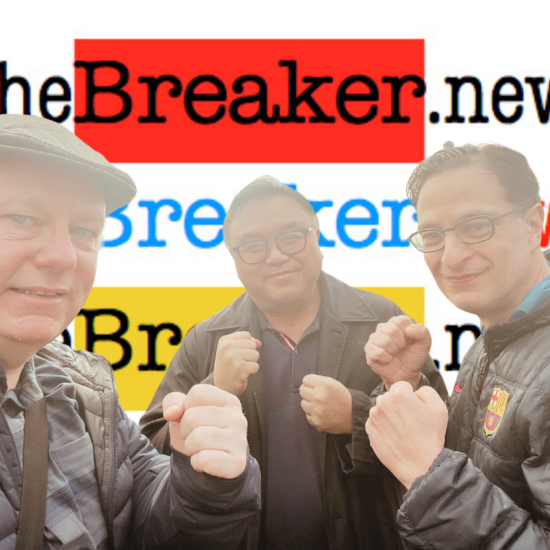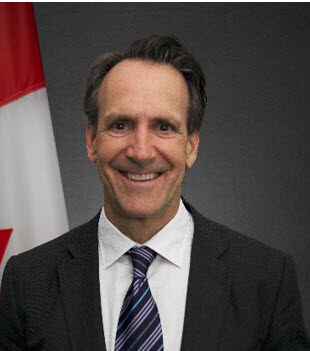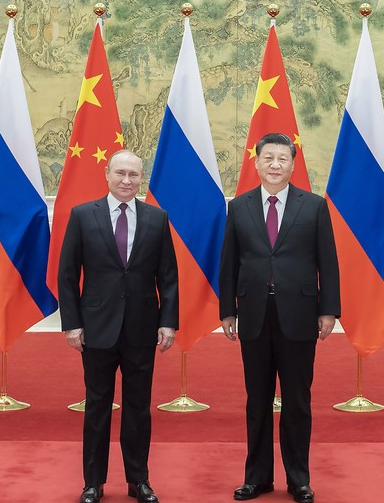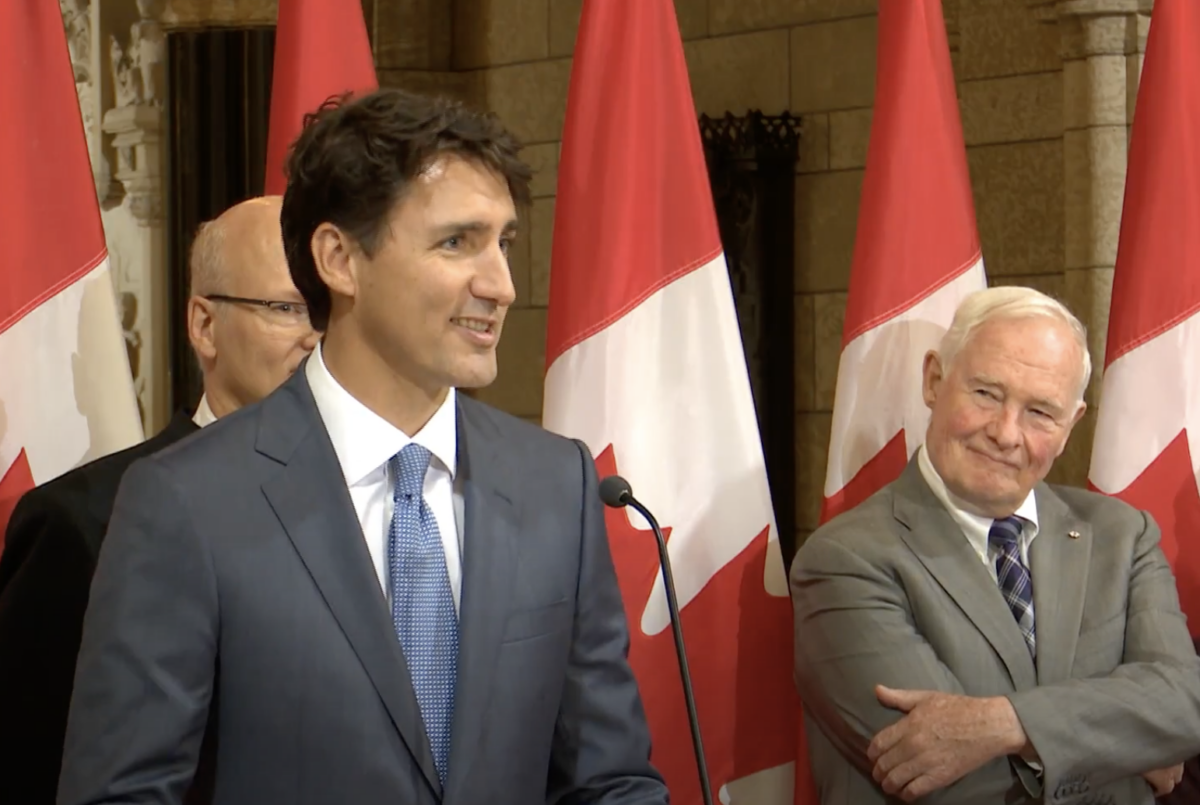
Bob Mackin
A former Conservative MP, who lost his seat in 2021 after being targeted by a Chinese social disinformation campaign, said he is not holding his breath for a public inquiry, despite a senior cabinet minister suggesting one could happen.
Special rapporteur David Johnston quit his $1,400 to $1,600-a-day post June 9, citing the partisan debate since his May 23 report that recommended no public inquiry into Chinese Communist Party interference in Canadian elections. The former governor general recommended the Liberal government consult opposition leaders — the same ones who called for his resignation — about a replacement.
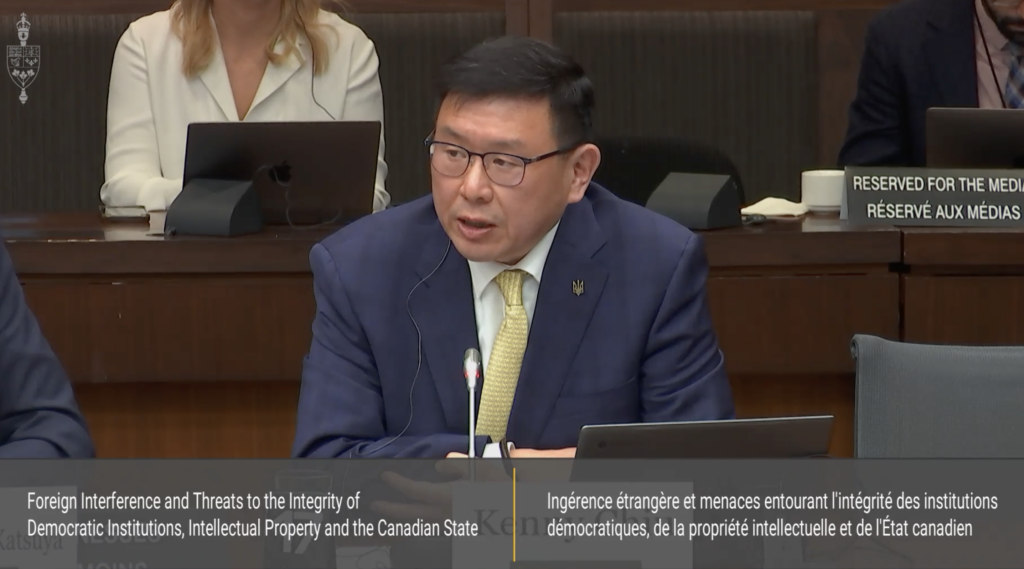
Kenny Chiu on March 31 at a House of Commons committee hearing on foreign interference (ParlVu)
Kenny Chiu, the Steveston-Richmond East MP from 2019 to 2021, said the Liberals would rather hold the opposition parties accountable than be accountable for their own actions and inactions in dealing with foreign interference and intimidation.
“The government that has all the power in legislation, and also the executive powers, they are the ones who are throwing up their hands,” Chiu said. “[They say] ’you want it? Here you go,’ just toss it. I don’t think that’s a mature act. And, unfortunately, from their track record, from their histories, it looks like that they will continue to find ways to bury this.”
On June 10, Intergovernmental Affairs Minister Dominic LeBlanc blamed Conservative leader Pierre Poilievre for “partisan buffoonery.” LeBlanc suggested a public inquiry could still happen, but the government may simply hire a replacement for Johnston and proceed with Johnston’s concept for a public meeting tour this summer.
“If he says this is a serious issue, this is the moment, very quickly, to come back to me and say, we think that these are two examples of the kinds of people who could lead this, we think this should be the terms of reference, here’s how we suggest that you deal with the obvious legal impediment around dealing with highly classified information,” LeBlanc told reporters. “Serious leaders would have serious suggestions on those issues.”
Chiu said Johnston was among the best to serve as governor general, but was “used” by Prime Minister Justin Trudeau, whose party benefited from Chinese government interference to stay in power. Chiu said Johnston’s lack of independence gave the opposition too many reasons to doubt Johnston, due to his friendship with the Trudeau family, membership in the Trudeau Foundation and frequent meetings with People’s Republic of China officials throughout his career. Johnston’s lawyer Sheila Block made more than $7,000 in donations to the Liberal Party and he even admitted to taking advice from veteran Liberal and NDP campaign masterminds, Don Guy and Brian Topp, respectively.
“So the whole thing gives people the impression that Mr. Johnston is in a hurry to prove that nothing to see here on the government side, and a public inquiry that would call people subpoena witnesses to it, and put witnesses under legally binding conditions, would not help somehow,” Chiu said.
Chiu said Johnston’s two months as “special rapporteur” began to unravel when he told a House of Commons committee on June 6 that he wasn’t able to access all the information and evidence before his report. The report already been drafted and sent to translation before he sat down with 2021 Conservative leader Erin O’Toole. Chiu said the turning point was when O’Toole spoke a week after Johnston’s report in the House of Commons about the Canadian Security Intelligence Service briefing that confirmed he was a target of the Chinese government.
“He did have a few pages to cover Steveston-Richmond East, in my case, because there have been media indications that the riding has been having more than a fair share of Chinese interference. But Mr. Johnston, and his resourceful office, has not even bothered to contact me,” Chiu said.
Johnston cited the breadth of classified information as the reason that a public inquiry was impossible. However, former Supreme Court Justice John Major oversaw the Air India Flight 182 inquiry from 2006 to 2010, which still managed to hold public hearings. Major’s report mentioned that commission counsel had access to uncensored versions of all documents, but only redacted versions could be disclosed to parties and entered as evidence.
History also shows that a public inquiry could be bogged down by restrictive terms of reference, conflict of interest and meddling.
The public inquiry into RCMP conduct at the 1997 Asia Pacific Economic Co-operation summit at the University of B.C. was temporarily derailed by resignations in late 1998. Commission lawyer Marvin Storrow quit after he attended a Liberal fundraiser, Solicitor General Andy Scott stepped down over allegations that the outcome was fixed and commission chair Gerald Morin resigned due to interference allegations. Morin’s successor Ted Hughes, the former Saskatchewan judge and B.C. conflict of interest commissioner, did not have the power to order Prime Minister Jean Chretien to testify. Chretien declined an invitation to appear.
Support theBreaker.news for as low as $2 a month on Patreon. Find out how. Click here.







